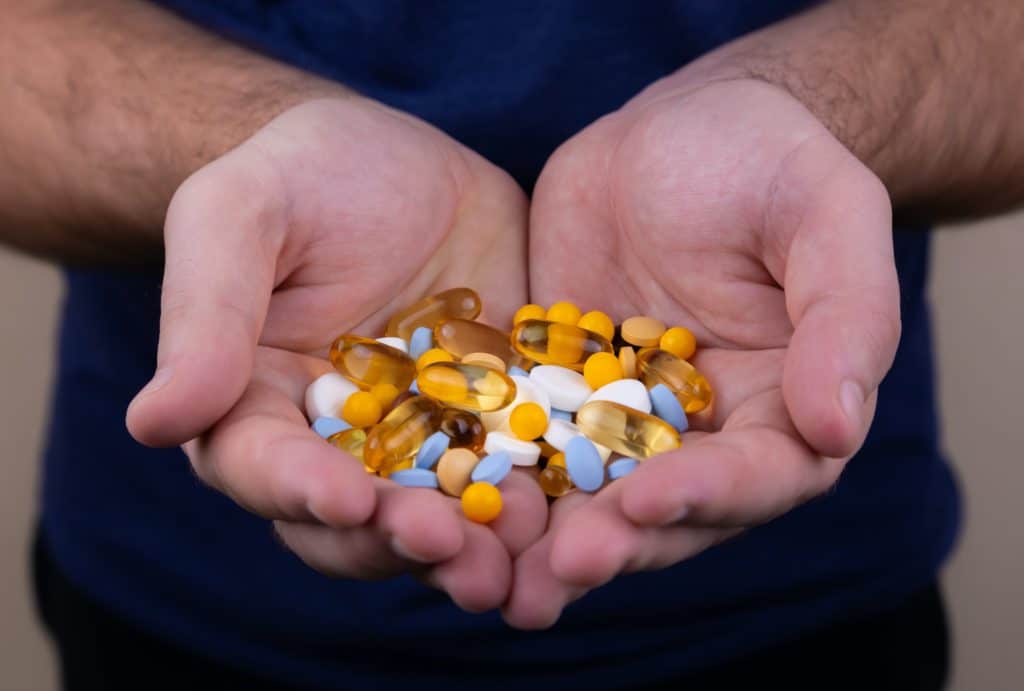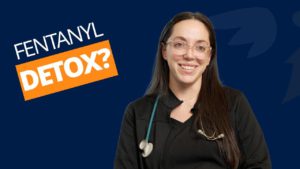
Breaking Chains with Summer House: Top Drug Addiction Treatment Center in Miami
As the shadows of drug addiction continue to grip many lives, finding the right treatment center becomes a beacon of hope. Summer House, located in

July 13, 2020
Alcohol detox is often the first part of alcohol addiction recovery, but certainly not the last. Even after completing detoxification, you are still in need of treatment and ongoing support to maintain sobriety. Alcohol addiction treatment, also known as alcohol rehab, is usually the next part of recovery, which you will attend after you finish alcohol detox in Florida.
But how long is alcohol rehab after detox? In all actuality, recovery is a lifelong process, but the length of time you’ll need to spend in rehab depends on your needs as a patient, and not on a set timeline.
According to the National Institute on Drug Abuse, detox is a program that is meant to help the patient stabilize after substance abuse has caused them to become dependent on drugs, alcohol, or both. Detox particularly focuses on helping wean patients off their dependence rather than creating a program for recovery, which is the focus of a rehabilitation program. Detox alone is not considered treatment for addiction.
Like with rehab, detox should be allowed to run its course in the way that is most effective for the patient. There is no set timeline for how long a person should be in detox. Rather, the patient should simply be allowed to work through their dependence on alcohol at the rate that is both safe and effective for them. Unfortunately, alcohol detox is unpredictable, so the question of how long the detox process might take is difficult to answer. As the National Library of Medicine states, alcohol withdrawal can start as little as eight hours after one’s last drink and stretch on for weeks. Generally, though, detox lasts anywhere from one to five weeks.
Alcohol rehab also varies in length because different patients need different types of treatment, all of which can vary. As a result, there are many distinctive types of rehab programs, which, as stated by NIDA, have evolved so much over the years that it is difficult to categorize them all.
In general, the length someone might spend in treatment will vary depending on several circumstances, some of which include the severity of the addiction, length of time the individual has been addicted to alcohol, and if the person has any other medical issues, e.g., depression, anxiety, etc.
Still, some rehab programs will only provide a certain length of care. It will depend on the type of treatment facility and specific programs that are offered. Not all treatment centers offer the same type of programs, and this could be due to the overall size of the facility itself, the number of staff, capacity for patients, and your insurance plan. All of these variables may go into deciding how long you will be in alcohol treatment after detox.
The main types of alcohol addiction treatment are listed below along with what you should expect from these programs as a patient and how long treatment usually takes.
Long-term inpatient treatment programs can last anywhere between six months to one year, depending on the patient’s insurance plan and unique needs. This type of treatment provides 24-7 care to patients who live at the facility. The purpose of this type of program is to take the patient away from the home environment that enabled them to use alcohol in the first place. Most facilities also refuse one’s family to visit in an attempt to avoid potential triggers. While in-person visits might not be allowed, phone calls are generally allowed. An inpatient program is usually an intensive around-the-clock program that offers a variety of services, including medication assistance, one-on-one meetings with a therapist, group meetings, and other activities that might be required.
These programs are milder than long-term residential programs but still provide a chance for patients to focus solely on their recoveries as opposed to living their lives during treatment. They are sometimes based on an established program, such as the 12-step approach made famous by Alcoholics Anonymous (AA), or on an individualized treatment program. Short-term residential programs sometimes offer a specific amount of time for patients to recover. These programs are often associated with treatment lengths approved by insurance companies and can range anywhere from 28 days to six weeks.
Partial Hospitalization Programs, or PHPs, offer short-term treatment for those who need intensive care but want to continue living at home to be with family. These programs are medically supervised and are usually beneficial for those who have a caregiver or supportive family members at home. Patients will generally remain at the facility in the morning and afternoon, returning home only in the evening. PHPs can sometimes last as long as six weeks, depending on the patient, their insurance, and their individualized treatment plan.
Intensive Outpatient Programs, or IOPs, are programs where patients attend scheduled meetings during the day with doctors, therapists, and recovery groups. These meetings usually take place several days throughout the week. These programs are much less intensive than PHPs, as they do not offer medical supervision, and in some cases, patients can continue attending work and/or school. In many cases, IOPs are longer programs for recovering individuals, simply because they are less intensive and more affordable. However, the exact amount of time a person will be in an IOP depends on their personal needs, insurance, and individualized treatment plan.
Outpatient treatment allows patients to continue living at home and attend work and/or school. They generally visit the facility several times per week to attend group meetings and may also be given medication to assist with ongoing side effects. Some people stay in outpatient treatment for years, especially those who seek this type of recovery program for opioid abuse. Regular checkups with a doctor and meetings with a therapist, as well as attending 12-step meetings, might be part of the long-term program as well.
Also, it is important to note that many people might participate in more than one treatment program. For example, someone might complete an inpatient program and then step down into an outpatient program to maintain their sobriety. mean that they don’t participate in more than one of these programs. Still, others might continue to attend 12-step meetings months, years, or decades after their initial rehab treatment program.
Unfortunately, no. Many people think that, once they complete treatment, they are no longer addicted to alcohol. The truth is that recovery is a lifelong process. According to NIDA, people who have become addicted to drugs and alcohol have a chronic disease, like asthma, diabetes, or hypertension. And you’ll need to constantly monitor yourself to avoid relapse.
This may mean multiple treatment programs will be necessary throughout your lifetime to help you remain stable and healthy during your recovery. Even though you may not want to seek treatment again after you finish your initial alcohol rehab program, it could be in your best interest down the line. You may not always be in treatment, but you will always be in recovery.
If you relapse, it is important to remember that treatment is still an option. You might need a refresher on the skills and practices that help you stay stable in your recovery, or you might need more help digging to the root cause of your relapse. Whatever the case may be, many people seek treatment again after relapse in order to help themselves get back to a place of stability and safety.
Don’t be discouraged by the fact that recovery is a lifelong process. It does not mean you’ll be in treatment forever, but it does mean that you will always need to monitor yourself and avoid environments that might enable you to use alcohol. The purpose of treatment is to acquire the skills and tools necessary to help you build a life of recovery.
Everyone has a unique journey, so be sure to avoid comparing yourself to others who are also recovering from alcohol addiction. You’ll meet several people along the way who are also in a similar situation. And while you build connections and friendships with others, you’ll be able to utilize them as a support system to help you during the recovery process. Whatever the case, you deserve a life of happiness and health, free of alcohol abuse and the problems that come from it.
If you or a loved one needs alcohol detox in West Palm Beach, contact us today at 800-719-1090 to learn more about our available alcohol rehab programs. You can also visit us at 13550 Memorial Highway Miami, FL 33161. We are open 24 hours a day, 7 days a week.

As the shadows of drug addiction continue to grip many lives, finding the right treatment center becomes a beacon of hope. Summer House, located in

Are you looking for a safe and compassionate drug detox center in Kendale Lakes, Florida? If so, look no further than Summer House Detox Center.

Are you looking to escape addiction in Homestead, Florida? Summer House Detox Center is one of the best detox centers in the area. Located just
For immediate assistance, please call our Admissions Specialists at 800-719-1090.
Speak With A Qualified Addiction Specialist 24/7